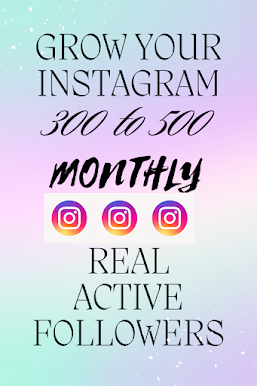One of the most crucial aspects of off-page SEO is link building. However, it's not just about acquiring as many links as possible; it's about building a strong and authoritative online presence that attracts organic traffic and drives real results. In this comprehensive guide, we will delve into the art of link building and explore other important off-page SEO strategies that will take your website to new heights.
Introduction to Off-Page SEO
Off-page SEO encompasses all the activities that occur outside your website but influence its visibility and authority in search engine rankings. While on-page SEO focuses on optimizing content, meta tags, and HTML elements on your webpages, off-page SEO revolves around building a strong online reputation through link building, social media presence, and other external factors.
Understanding the Role of Off-Page SEO:
Off-page SEO plays a vital role in determining your website's credibility and popularity. Search engines consider backlinks from authoritative and relevant websites as "votes" for your content's quality. The more high-quality backlinks you have, the more search engines trust your site, leading to improved rankings.
How Off-Page SEO Differs from On-Page SEO:
On-page SEO deals with optimizing individual webpages to improve their visibility in search results, whereas off-page SEO focuses on increasing your website's overall authority and reputation across the internet. It involves building relationships with other websites, influencers, and the online community to establish your brand as a trustworthy and valuable resource.
The Power of Link Building
Quality vs. Quantity: The Link Building Dilemma:
In the early days of SEO, quantity often outweighed quality, and websites sought to acquire as many backlinks as possible, regardless of their relevance or authority. However, search engine algorithms have evolved, and now, quality is paramount. Building a few high-quality, authoritative backlinks can have a more significant impact on your SEO efforts than hundreds of low-quality links.
Types of Backlinks: Natural, Manual, and Self-Created:
Backlinks can be broadly categorized into three types: natural, manual, and self-created. Natural backlinks are earned organically when other websites link to your content because it's valuable and relevant. Manual backlinks are acquired through intentional outreach efforts, while self-created backlinks involve adding links to forums, comments, or other platforms yourself.
Crafting Compelling Content for Link Building
Content that Earns Links Naturally:
Creating link-worthy content is at the core of any successful link building strategy. Your content should be informative, engaging, and unique, offering value to your target audience. Infographics, comprehensive guides, and data-driven articles are examples of content formats that tend to attract natural backlinks from other websites.
Guest Blogging and Outreach Strategies:
Guest blogging on relevant and authoritative websites is an effective way to gain exposure, establish your expertise, and earn valuable backlinks. Outreach strategies involve reaching out to website owners, bloggers, and influencers in your niche to request backlinks or collaborations.
Leveraging Social Media for Off-Page Success
The Impact of Social Signals on SEO:
While social media signals directly do not influence search engine rankings, social media platforms are essential for increasing your content's reach and visibility. Social shares can lead to more exposure and potentially attract backlinks from interested parties.
Best Practices for Social Media Link Building:
Consistency and engagement are key when leveraging social media for off-page SEO. Create shareable content, interact with your audience, and join relevant groups and discussions to build a loyal following and amplify your content's reach.
Influencer Marketing and Brand Mentions
Collaborating with Influencers for SEO Benefits:
Influencer marketing involves partnering with influencers or thought leaders in your industry to promote your content or products. Their endorsement can drive traffic to your website and attract valuable backlinks from their followers.
Monitoring and Engaging with Brand Mentions:
Brand mentions, even without links, contribute to your online reputation. Monitor mentions of your brand and engage with users who talk about your products or services to build brand loyalty and potentially earn backlinks.
Online Directories and Local SEO
The Role of Business Listings in Off-Page Optimization:
Submitting your business information to online directories and local citation websites helps improve your website's local SEO. These listings provide valuable backlinks and ensure that potential customers can find accurate information about your business.
Navigating Local Citations for Improved Visibility:
Consistency and accuracy are crucial when dealing with local citations. Ensure that your business name, address, and phone number (NAP) information is consistent across all directories to avoid confusing search engines and potential customers.
The Art of Link Earning
Building Link-Worthy Assets and Resources:
Invest in creating high-quality, link-worthy assets on your website, such as comprehensive guides, research papers, tools, or interactive content. These assets will naturally attract backlinks from other websites and establish your site as an authoritative resource.
Getting Featured on Resource Pages and Roundups:
Resource pages and roundups are compilations of valuable content or tools from various sources. Getting featured on such pages can drive significant traffic to your website and earn you valuable backlinks.
The Dos and Don'ts of Off-Page SEO
Avoiding Black Hat Practices and Penalties:
Black hat SEO tactics, such as buying links or engaging in link schemes, can lead to severe penalties from search engines. Focus on ethical and sustainable link building strategies to avoid jeopardizing your website's reputation and rankings.
Maintaining a Healthy and Natural Link Profile:
A healthy link profile comprises a diverse set of high-quality backlinks from various authoritative sources. Regularly monitor your backlinks and disavow any toxic or spammy links to maintain a clean and natural link profile.
Measuring Off-Page SEO Success
Key Metrics and Tools for Analysis:
Tracking the success of your off-page SEO efforts is crucial to refining your strategies. Utilize tools like Google Analytics and Search Console to monitor website traffic, backlink growth, and keyword rankings.
Analyzing Competitor Strategies for Insights:
Study your competitors' backlink profiles and overall off-page strategies to gain insights into what works in your industry. Identify opportunities they may have missed and adapt successful tactics for your own website.
The Future of Off-Page SEO
Emerging Trends and Technologies:
As search engine algorithms evolve, so will off-page SEO strategies. Stay updated on emerging trends, such as voice search optimization and AI-driven content, to stay ahead of the curve.
Preparing for Algorithmic Changes:
Search engines continually update their algorithms, which can impact your website's rankings. Focus on creating valuable content and building organic relationships to ensure long-term success, regardless of algorithmic changes.
Conclusion
Mastering off-page SEO, especially the art of link building, is a journey that requires patience, dedication, and creativity. By building a strong online presence through ethical link building, social media engagement, influencer collaborations, and local SEO efforts, you can position your website for sustainable growth and success in the ever-competitive digital landscape.
FAQs
Why is off-page SEO important for my website?
Off-page SEO helps build your website's authority and reputation, leading to higher rankings in search engine results and increased organic traffic.
What is the difference between natural and self-created backlinks?
Natural backlinks are earned organically when other websites link to your content because it's valuable. Self-created backlinks involve adding links yourself, such as in comments or forums.
How can I measure the success of my off-page SEO efforts?
Use tools like Google Analytics and Search Console to track website traffic, backlinks, and keyword rankings to assess the impact of your off-page strategies.
Are social media signals directly linked to search engine rankings?
While social media signals don't directly impact rankings, they play a crucial role in increasing your content's reach and potentially attracting backlinks.
What should I avoid in off-page SEO to prevent penalties?
Avoid engaging in black hat SEO practices, such as buying links or participating in link schemes, as they can lead to severe penalties from search engines.







0 Comments